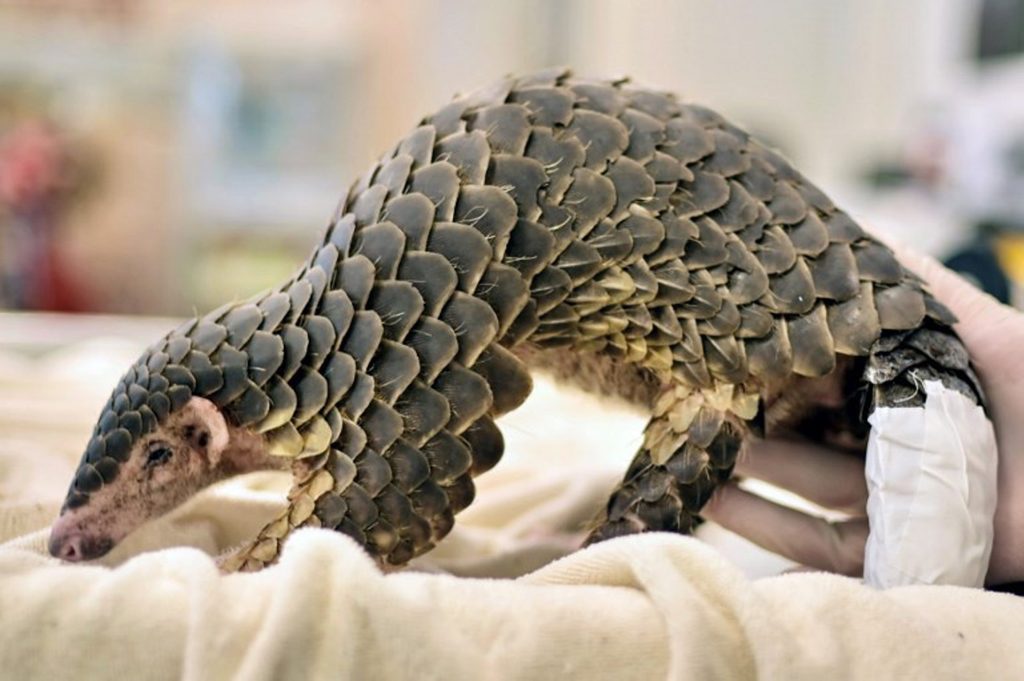A new species of pangolin has been discovered by scientists from the analysis of confiscated scales of the mammal, according to a study published on Tuesday.
Scientists previously thought that there were only four Asian and four African varieties of this nocturnal mammal, which is the victim of extensive global trafficking. However, a study published on Tuesday in the scientific journal 'Proceedings of the National Academy of Sciences' has revealed that a ninth species had up until now escaped scientists' attention.
It was initially the analysis of 27 scales confiscated in Hong Kong in 2012 and 2013 that put researchers on the trail of a ninth species. However, scientists were unable to draw any definitive conclusions at the time, as the gene fragments available were too small in quantity.
On the basis of this initial work, researchers then analysed scales that had been confiscated in the southwestern Chinese province of Yunnan in 2015 and 2019, and discovered a new lineage, "distinct from the eight other currently known species of pangolin."
Related News
- New Brussels Sewer Museum exhibition uncovers the underground world of rats
- Brussels to allow residents to be buried alongside their pets
- 'We never give up': Belgian ornithologists save bird species from extinction
As this species bears similarities to the Asian branch of the pangolin family, known as 'Manis', the researchers gave it the name Manis mysteria, in reference to its enigmatic nature. Most of the Asian pangolins arriving in Hong Kong and Yunnan province are thought to have originated in South-East Asia.
The scales of this mammal, which is a victim of global trafficking, are coveted in particular for use in traditional medicine. The small animal is also highly prized for its meat. More than one million pangolins are thought to have been poached in the wild between 2004 and 2014, but all international trade in the animal was banned in 2016.

